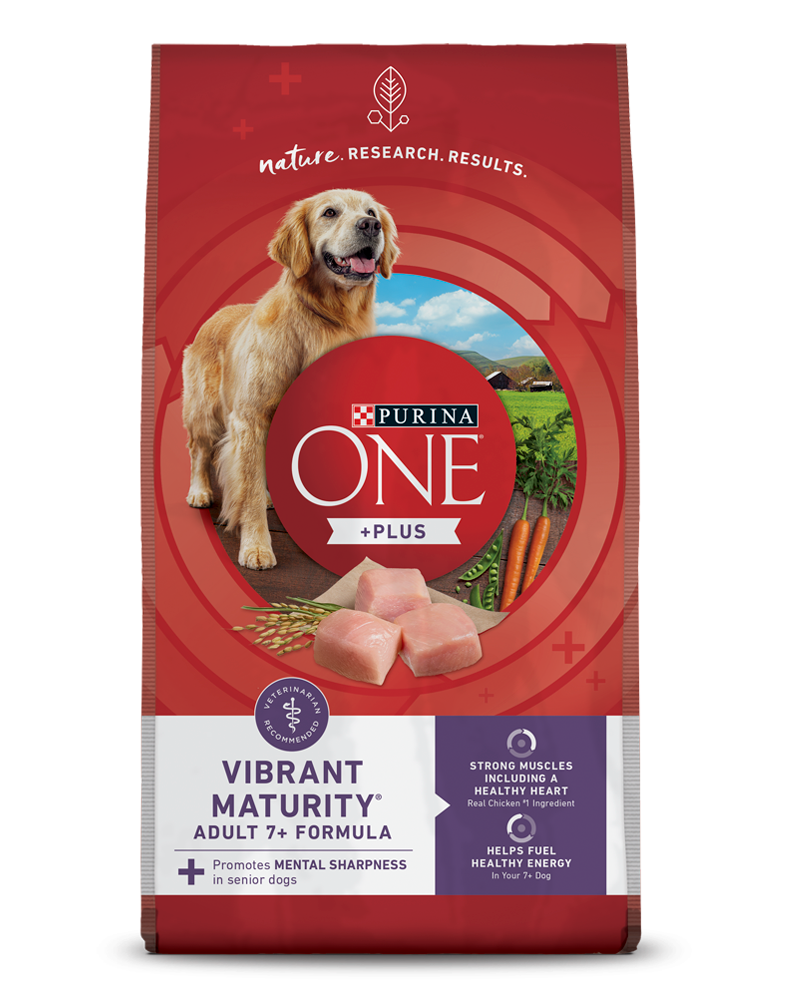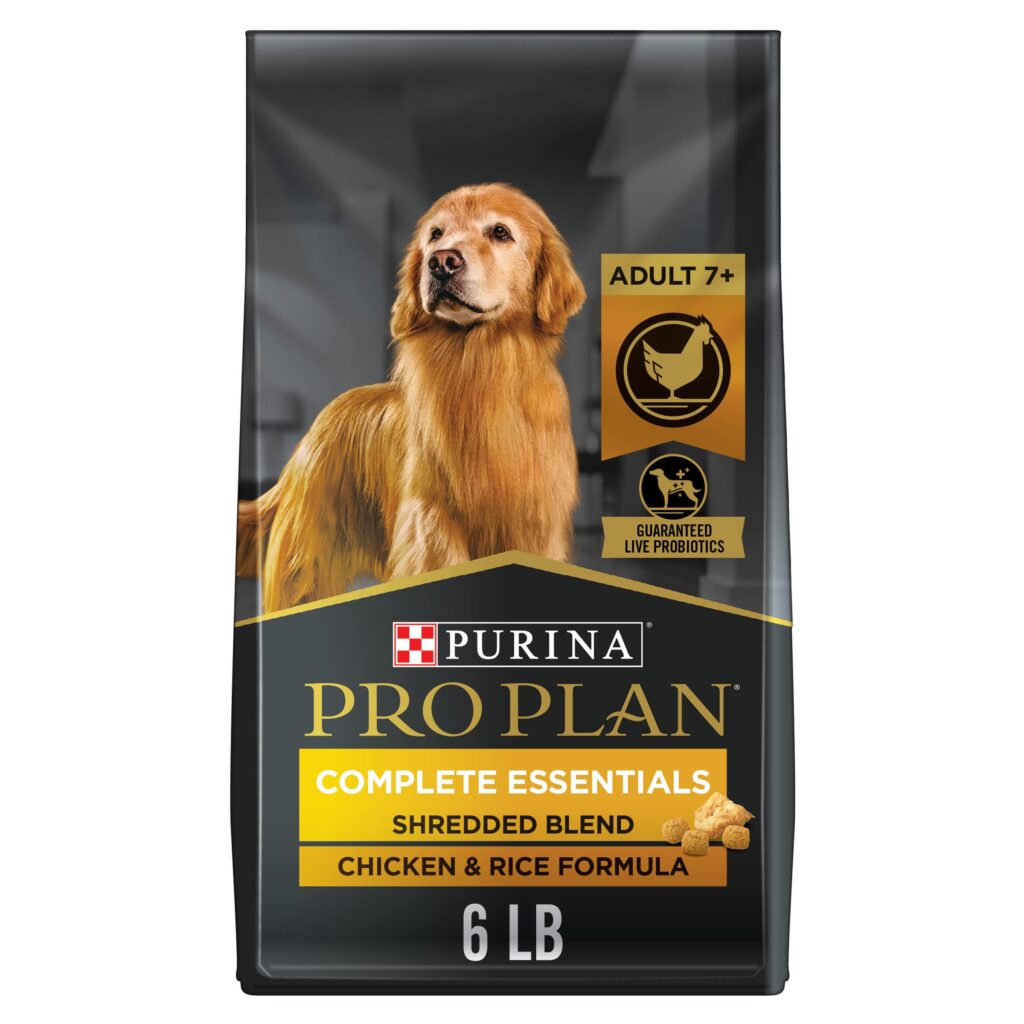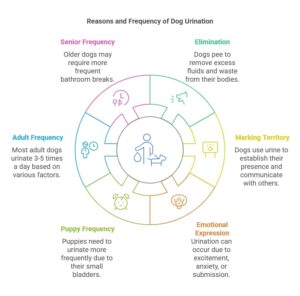Senior dog food is specially formulated to meet the nutritional needs of aging dogs. It often contains fewer calories, higher fiber, and added joint support.
As dogs age, their dietary requirements change significantly. Senior dog food addresses these needs, promoting better health and longevity. Older dogs may experience weight gain, joint issues, and digestive changes. A well-balanced senior diet helps manage these challenges effectively. Ingredients like omega fatty acids support skin and coat health, while antioxidants boost the immune system.
Protein sources become crucial to maintain muscle mass. Choosing the right senior dog food can enhance your pet's quality of life. Always consult your veterinarian for tailored advice based on your dog's specific health conditions. Prioritizing nutrition can make a meaningful difference in your furry friend's well-being.
Table of Contents
ToggleNutritional Needs

As dogs age, their nutritional needs change. Senior dogs require special food to keep them healthy. The right diet helps them live longer and feel better. Proper nutrition is vital for their energy and overall well-being. Understanding these needs can help pet owners provide the best care.
Essential Nutrients
Senior dogs need a balanced diet with essential nutrients. These nutrients help maintain their health and energy levels. Here are some important nutrients for senior dogs:
- Protein: Helps maintain muscle mass and repair tissues.
- Fiber: Aids digestion and prevents constipation.
- Omega fatty acids: Supports skin and coat health.
- Vitamins: Boosts immune system and overall health.
- Minerals: Supports bone health and organ function.
Here’s a table showing recommended nutrient levels in senior dog food:
| Nutrient | Recommended Level |
|---|---|
| Protein | 18-25% |
| Fat | 8-15% |
| Fiber | 4-8% |
| Omega-3 Fatty Acids | 0.5-1% |
Feeding senior dogs the right balance of these nutrients helps them stay active and healthy.
Caloric Requirements
Caloric needs change as dogs age. Senior dogs usually need fewer calories than younger ones. This is because they are less active and have a slower metabolism. Overfeeding can lead to obesity, which is harmful to their health.
It’s important to calculate the right amount of calories for your senior dog. Factors include their weight, activity level, and health condition. Here’s a simple way to estimate their daily calorie needs:
- Small dogs (under 20 lbs): 200-400 calories
- Medium dogs (20-50 lbs): 400-800 calories
- Large dogs (50 lbs and above): 800-1600 calories
Always consult a vet to determine the best caloric intake for your dog. Tailoring their diet helps maintain a healthy weight and supports their overall health.

Credit: www.amazon.com
Ingredients To Look For
Choosing the right food for your senior dog is very important. As dogs age, their nutritional needs change. Ingredients play a key role in keeping your furry friend healthy. Understanding what to look for can help you make the best choices for your dog's diet.
High-quality Proteins
High-quality proteins are essential for senior dogs. They help maintain muscle mass and support overall health. Look for meats like chicken, beef, or fish as the first ingredient. These proteins provide the necessary amino acids for your dog.
- Chicken: A great source of lean protein.
- Fish: Contains omega-3 fatty acids that are good for joints.
- Beef: Rich in iron and essential nutrients.
- Eggs: Packed with protein and easy to digest.
Here is a simple table showing different protein sources:
| Protein Source | Benefits |
|---|---|
| Chicken | Lean and full of protein |
| Fish | Good for skin and coat health |
| Beef | High in iron and energy |
| Eggs | Easy to digest and nutrient-rich |
Healthy Fats
Healthy fats are crucial for senior dogs as well. They provide energy and support brain function. Look for sources like fish oil and flaxseed. These fats can help improve your dog's coat and skin health.
- Fish Oil: Rich in omega-3 fatty acids.
- Flaxseed: A great plant-based source of healthy fats.
- Chicken Fat: Provides concentrated energy.
- Coconut Oil: Supports healthy digestion and skin.
Healthy fats can also help reduce inflammation. This is important for older dogs who may have joint issues. Here’s a quick overview of healthy fat sources:
| Fat Source | Benefits |
|---|---|
| Fish Oil | Supports heart and joint health |
| Flaxseed | Helps with digestion and skin |
| Chicken Fat | Provides energy and flavor |
| Coconut Oil | Boosts immunity and digestion |
Common Health Issues
As dogs age, their dietary needs change. Senior dog food helps support their health. It addresses common health issues that arise. These include joint problems and weight management. Understanding these issues can help keep your furry friend happy and healthy.
Joint Problems
Many senior dogs face joint problems as they age. These issues can make it hard for them to move. Common joint problems include:
- Arthritis
- Hip dysplasia
- Osteoporosis
To help your dog, consider these key points:
- Provide joint supplements like glucosamine and chondroitin.
- Choose a food with high-quality proteins for muscle support.
- Ensure your dog maintains a healthy weight to reduce stress on joints.
A well-balanced diet can improve your dog's joint health. Here’s a simple table of foods that can help:
| Food | Benefits |
|---|---|
| Salmon | Rich in omega-3 fatty acids |
| Sweet Potatoes | High in fiber and vitamins |
| Green Lipped Mussel | Supports joint health |
Weight Management
Weight management is crucial for senior dogs. Extra weight can lead to various health issues. These can include heart disease and diabetes. Maintaining a healthy weight can help your dog live longer.
Here are some effective tips for managing your dog's weight:
- Feed smaller, more frequent meals.
- Choose low-calorie dog food designed for seniors.
- Limit treats and monitor portion sizes.
Regular exercise is also very important. Simple activities like short walks can help. This will keep your dog active and healthy. Here’s a quick reference table:
| Activity | Duration |
|---|---|
| Short walks | 15-30 minutes daily |
| Playtime | 10-15 minutes, a few times a week |
| Swimming | 20-30 minutes, 2-3 times a week |

Credit: openfarmpet.ca
Types Of Senior Dog Food
Senior dogs have special needs. Their food must support their health. Choosing the right type is important. There are two main types of senior dog food: dry kibble and wet food. Each type has its benefits. Understanding these options helps dog owners make the best choice.
Dry Kibble
Dry kibble is a popular choice for senior dogs. It is easy to store and serve. Many brands focus on nutrients needed for aging dogs. This type of food can help keep teeth clean. Here are some key points about dry kibble:
- Contains high-quality proteins for muscle health.
- Includes fiber for healthy digestion.
- Often fortified with vitamins and minerals.
- Lower moisture content, which can help with dental health.
Here is a table comparing two popular dry kibble options:
| Brand | Protein Content | Key Ingredients |
|---|---|---|
| Brand A | 25% | Chicken, Brown Rice, Sweet Potatoes |
| Brand B | 22% | Salmon, Barley, Peas |
Both options have benefits. Always read the label to find the best fit for your dog.
Wet Food
Wet food is another great choice for senior dogs. It is softer and easier to chew. Many dogs enjoy the taste and smell of wet food. This type of food is usually higher in moisture. It can help keep your dog hydrated. Here are some important points about wet food:
- More palatable for picky eaters.
- Higher moisture content for hydration.
- Can be mixed with dry kibble for variety.
- Often contains added nutrients for older dogs.
Check out this table comparing two popular wet food options:
| Brand | Protein Content | Key Ingredients |
|---|---|---|
| Brand C | 30% | Beef, Carrots, Rice |
| Brand D | 28% | Chicken, Peas, Potatoes |
Wet food offers great taste and nutrition. Consider your dog's preferences and needs.
Homemade Options
Feeding senior dogs requires special care. Homemade options can be healthy and tasty. Many dog owners prefer to make their own food. This allows them to control ingredients. It also ensures that their furry friends get proper nutrition.
Balanced Recipes
Creating balanced meals for senior dogs is very important. These recipes should contain the right nutrients. Here are some basic components to include:
- Protein: Lean meats like chicken, turkey, or fish.
- Carbohydrates: Brown rice, sweet potatoes, or oats.
- Vegetables: Carrots, peas, and green beans.
- Fats: Fish oil or flaxseed oil for healthy skin.
Here's a simple balanced recipe:
| Ingredient | Amount |
|---|---|
| Chicken (cooked) | 2 cups |
| Brown rice (cooked) | 1 cup |
| Carrots (chopped) | 1 cup |
| Fish oil | 1 tablespoon |
Mix these ingredients well. This recipe provides essential nutrients for senior dogs.
Ingredient Considerations
Selecting the right ingredients is crucial for senior dog health. Certain ingredients can help maintain energy levels. Others can support joint health and digestion.
- Avoid: Foods high in fat or sugar.
- Include: Ingredients rich in antioxidants.
- Watch out for: Allergens like wheat or soy.
Here are some safe ingredients to consider:
| Ingredient | Benefit |
|---|---|
| Blueberries | Rich in antioxidants. |
| Pumpkin | Good for digestion. |
| Spinach | High in vitamins. |
Always check with a vet before changing your dog's diet. This ensures that meals are safe and beneficial.
Transitioning Foods
Senior dogs require special care, especially when it comes to their food. Choosing the right senior dog food is important for their health. Transitioning foods can be tricky, but it helps them adjust better. A smooth transition can prevent tummy troubles and promote better digestion.
Gradual Changes
Making gradual changes to your dog's diet is essential. A sudden switch can upset their stomach. Start by mixing the new food with their current food. Here’s how to do it:
- Days 1-3: Mix 25% new food with 75% old food.
- Days 4-6: Mix 50% new food with 50% old food.
- Days 7-9: Mix 75% new food with 25% old food.
- Day 10: Serve 100% new food.
This method helps your dog adjust gradually. Watch for any signs of discomfort during this process. It’s important to keep their meals consistent. If your dog has a sensitive stomach, this method is even more crucial.
Monitoring Reactions
Monitoring your dog's reactions during the transition is key. Look for any changes in behavior or health. Here are some things to watch for:
- Vomiting or diarrhea: Stop the transition if this happens.
- Changes in energy levels: A sudden drop can indicate problems.
- Skin irritations or allergies: New food can sometimes cause reactions.
- Weight changes: Keep an eye on any significant weight loss or gain.
Keep a diary of their reactions. This can help you spot patterns or issues. If you notice any problems, consult your vet. They can provide advice on the best food for your senior dog.

Credit: www.purina.com
Frequently Asked Questions
What Is The Best Food For Senior Dogs?
The best food for senior dogs is high in protein and low in calories. Look for options that contain healthy fats and antioxidants. Ingredients like chicken, fish, and sweet potatoes are excellent choices. Always consult your veterinarian for personalized recommendations based on your dog’s specific health needs.
How Often Should I Feed My Senior Dog?
Feed your senior dog two to three small meals daily. This helps maintain steady energy levels and aids digestion. Older dogs may have slower metabolisms, so adjust portion sizes accordingly. Always monitor your dog’s weight and consult your vet for tailored feeding guidelines.
What Nutrients Do Senior Dogs Need Most?
Senior dogs need more fiber, protein, and essential fatty acids. Fiber aids digestion and prevents obesity. Protein supports muscle maintenance, while healthy fats promote skin and coat health. Always choose foods fortified with vitamins and minerals to ensure your dog receives comprehensive nutrition for optimal health.
Can I Switch My Senior Dog's Food Suddenly?
No, sudden food changes can upset your senior dog's stomach. Gradually introduce new food over 7 to 10 days. Mix a small amount of the new food with the old, increasing the new food proportion gradually. This helps prevent gastrointestinal issues and allows your dog to adjust smoothly.
Conclusion
Choosing the right senior dog food is essential for your pet's health. Quality ingredients can improve their vitality and overall well-being. Always consult your veterinarian for tailored advice. Investing in proper nutrition now can lead to a happier, healthier life for your furry friend.
Give them the best care they deserve.















One Response
You might read objective evaluations of the business’s
offerings on websites like Trustpilot and the Bbb.
Feel free to visit my webpage best mushroom supplement for cancer (answers.snogster.com)